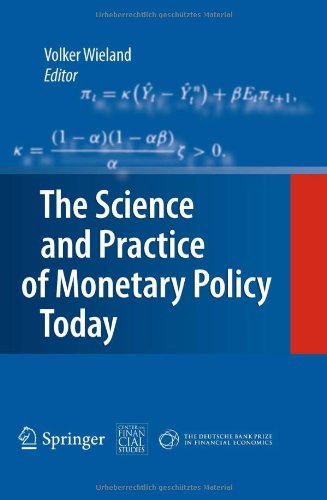

Most ebook files are in PDF format, so you can easily read them using various software such as Foxit Reader or directly on the Google Chrome browser.
Some ebook files are released by publishers in other formats such as .awz, .mobi, .epub, .fb2, etc. You may need to install specific software to read these formats on mobile/PC, such as Calibre.
Please read the tutorial at this link: https://ebookbell.com/faq
We offer FREE conversion to the popular formats you request; however, this may take some time. Therefore, right after payment, please email us, and we will try to provide the service as quickly as possible.
For some exceptional file formats or broken links (if any), please refrain from opening any disputes. Instead, email us first, and we will try to assist within a maximum of 6 hours.
EbookBell Team

4.0
56 reviewsThis book presents important aspects of the New-Keynesian theory of monetary policy and its implications for the practical decision-making of central bankers today. Bridging the theory and practice of monetary policy, it provides an exposition on the key elements of the New-Keynesian approach, outlines important lessons for policymakers, and points to new directions for further research. Important policy implications of the New-Keynesian approach such as the case for forecast targeting as a strategy for monetary policy, the combination of model-based forecasts with cyclical analysis, and strategies for cross-checking model-based policy recommendations are presented in detail. The book brings together new contributions from leading scientists and experienced policymakers presented at an academic symposium on the occasion of the awarding of the Deutsche Bank Prize in Financial Economics 2007 to Professor Michael Woodford.
With contributions by: Josef Ackermann, Deutsche Bank AG; Günter Beck, Goethe University Frankfurt; Jordi Galí, Universitat Pompeu Fabra; Stefan Gerlach, Goethe University Frankfurt; Domenico Giannone, European Central Bank; Otmar Issing, Goethe University Frankfurt; Hermann-Josef Lamberti, Deutsche Bank AG; Patrick Lane, The Economist; Bennet T. McCallum, Carnegie Mellon University; Frederic Mishkin, Columbia Business School; Francesca Monti, Université Libre de Bruxelles; Lucrezia Reichlin, London Business School; Norbert Walter, Deutsche Bank AG; Celia Wieland, wieland EconConsult; Volker Wieland, Goethe University Frankfurt; Michael Woodford, Columbia University